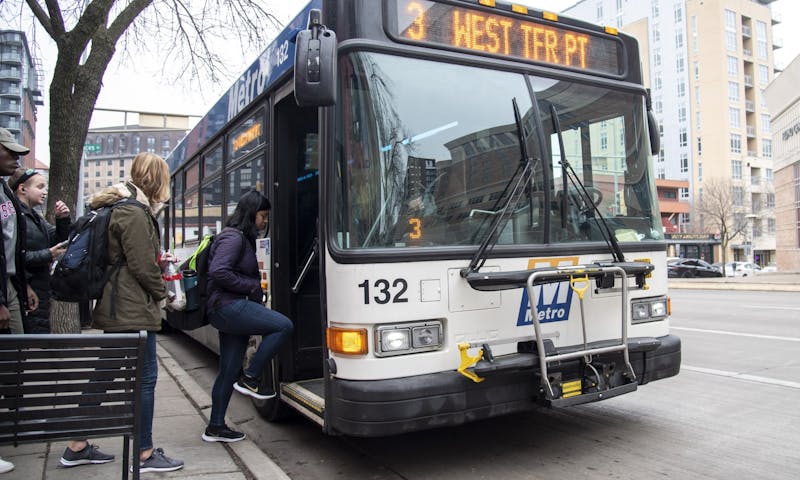
Not only do Paratransit services provide rides to and from locations, but the service can also be used to get to and from bus stops.
Image By: Will Cioci
Not only do Paratransit services provide rides to and from locations, but the service can also be used to get to and from bus stops.
Image By: Will CiociThough Madison’s metro system may soon be undergoing big changes with Mayor Satya Rhodes-Conway’s new Bus Rapid Transit plan — accessibility has always been a constant focus for the city’s public transportation.
The modernization of public transportation, while aesthetically pleasing and energy sustainable, does not always take into account ridership accessibility. From cashier and attendentless ticket kiosks to social media-based apps for municipal transit, cities are increasingly choosing to digitize over considering accessibility.
Luckily, Madison is changing that trend.
Since the passage of the Americans with Disabilities Act in 1990, public transit agencies have been required to provide Paratransit services to individuals with disabilities. In other words, public transit must provide functional services to people unable to use common forms of transportation.
For Madison residents, all Metro Transit buses are equipped to do just that.
Every bus in the city has features that make transit accessible for everyone, including automatic stop announcements with visual aids, wheelchair securement and priority seating in the front of the bus. Buses also get closer to the ground to make it easier for riders to embark.
However, not everyone is able to use the fixed-route buses operating normally in the city. Consequently, both Dane County and the city of Madison have programs designed to help.
Madison’s Paratransit services complement the fixed-routes, utilizing the same area and hours of the primary system. By using various companies and vehicle ride-share services, the Paratransit program responds to individual ride requests.
Not only do Paratransit services provide rides to and from locations, but the service can also be used to get to and from bus stops, especially if someone is able to ride a bus but is unable to get to the stop.
According to Nancy Senn, Paratransit Manager at Madison Metro, the city is making efforts to make bus and paratransit operators even more accessible.
“We’ve completed dementia-friendly training to make our bus drivers more welcoming to people with disabilities,” Senn said. “There are some people who can use fixed-route buses sometimes, and there are some individuals who can’t use them at all, so we want to try to preserve our paratransit service for people who don’t have a choice, who don’t have an option.”
A downside of the Paratransit service is that it does not usually afford the space in a vehicle to carry large amounts of baggage or groceries, according to Senn.
Dane County and the city have teamed up to create a specific program to do just that.
The Dane County Department of Human Services has developed a program called Group Access Service that provides scheduled group rides to destinations — like the grocery store, general shopping locations, nutrition sites, food pantries and special events.
People with disabilities and adults over the age of 60 are eligible to use this program. Unlike the Metro paratransit service, Group Access Service makes it is easier to go grocery shopping or bring along multiple bags for differently-abled people.
To increase effective transportation for everyone, the mayor’s new Metro Forward plan is another method to being more accessible throughout Madison.
In September, Mayor Rhodes-Conway unveiled her Bus Rapid Transit plan, which will speed up workforce transportation, reduce congestion and drive times and make transportation more equitable and accessible, according to the city.
The first point in Rhodes-Conway’s plan in reaching the goals of Metro Forward is expanding accessibility and service.
Lack of transportation in Madison disproportionately impacts people of color, seniors, young people, low- to middle-income families and those differently-abled, according to an analysis of the current metro system.
This makes it harder for those marginalized communities to reach the places they need to go.
In order to curb some of that impact, Rhodes-Conway proposes to subsidize additional passes for riders and families in need, provide free summer youth passes for eligible middle and high school students, as well as enhance weekend and evening service for workers and families.
The city has also given Metro the green light to purchase newer, more energy-sustainable buses that are even more accessible than the current fleet. The new buses feature wider back doors for easier exit and entry.
“This is a top priority for my administration,” Rhodes-Conway told the Cap Times. “Metro Forward is a critical investment in our transportation, our economy and, most importantly, our community.”